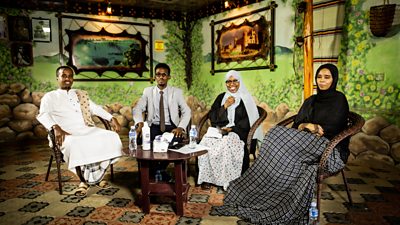Downloads
Publication: January 2023
Qualitative research with influencers and mothers and fathers informed the development of the radio programme Tusmada Nolosha (Lifeline) and provided feedback on how they felt it had addressed the topic of female genital mutilation/cutting (FGM/C).
Context
Somalia has one of the highest female genital mutilation/cutting (FGM/C) prevalence rates in the world. It has been practiced in Somalia for several decades. The reported that over 90 per cent of girls and women aged 15-49 have been subject to FGM/C. The practice has harmful health consequences - including pain, bleeding, disability and even death â yet discussion around this .
Project background
From April to June 2022, ±«Óătv Media Action, with funding from GIZ through its project on FGM prevention in Eastern Africa, adapted Tusmada Nolosha, a 15-minute weekly radio programme, to produce eight episodes focused on FGM/C. The programme had a 10-minute discussion and five-minute drama segment. This was then broadcast by seven of ±«Óătv Media Actionâs local partner radio stations across Somalia. Content of the programmes was collected from different regions of the country, with the help of partner stations. ±«Óătv Media Action also created social media content on this topic for its page.
Research methodology
Research was carried out to inform the media content produced, to test pilot output and to assess peopleâs views of the programme.
First, small-scale formative research was conducted to understand Somali audiences' knowledge, beliefs and misconceptions around FGM/C. Interviews were conducted across Somaliland, Puntland and South Central Somalia with mothers of daughters who had undergone FGM/C; with women who had conducted the procedure of FGM/C; and with key informants (FGM/C experts and a religious leader). Focus group discussions were conducted in Hargeisa, Somaliland, with separate groups of mothers and fathers who had a daughter who had undergone FGM/C, to test programme output.
Second, respondents were played a pilot programme covering the origins of FGM/C in Somalia, the different procedures and negative effects on girls, to test whether the programme was clear, relatable and had the intended impact.
Third, to gather audience feedback, four focus group discussions were conducted with mothers and fathers who had daughters who had undergone FGM/C, to understand the impact of the radio programme on their knowledge, attitudes and practices.
Key findings
FGM/C is seen to increase the chances of girls getting married
- Mothers reported that the main motivation for FGM/C is to reduce a girlâs sexual desire and therefore keep her virginity. This is seen to help her get married.
- Mothers supported the belief that FGM/C helps maintain respect for the family in the communities, and thought that families that do not practice FGM/C would be discriminated against.
- A religious leader mentioned that being sexually active before marriage is considered a major sin in Islam.
A wake-up call for the community
- Tusmada Nolosha was described as a âwake-up callâ for the community as it informed them of the dangerous effects of FGM/C.
- Men talked about how the programme informed them about the problems that their wives go through from the effects of FGM/C, such as the pain from their âmensesâ, and pain while giving birth.
- There was also mention that men thought FGM/C is part of the journey that a girl should go through when she reaches puberty. Listening to the religious leaders in the programme helped them to reconsider, although they were still hesitant about the idea of marrying a girl who had not undergone FGM/C.
Drama is a good format for addressing FGM/C
- Drama can help build listenersâ empathy with different characters and storylines which help listeners to reconsider and reflect on their own lives in an indirect way.
- For example, participants recalled the drama storyline of Qamar, a female character who strongly supported FGM/C as it was part of her culture. She wanted her daughter to undergo FGM/C and the story follows the tragic consequences of this decision. Female listeners were sad to hear that her daughter died, because her mother refused to take any advice from her sister and a friend who was a doctor.
- Male participants stated in groups that now they will try to be more involved in their daughtersâ lives when they reach puberty to make sure that their wives will not have FGM/C performed on their daughters.
I used to always tell my wife that FGM is women's issues and always asked her to make the decision for our daughter, but now that I am aware of the health complications I will make the decision not to do FGM on my remaining daughtersâ
Key implications
The research has implications for the need to continue work around FGM/C in Somalia.
- FGM/C is a complex social norm in Somalia that is widely accepted by women and men and there is a fear of sanctions for not following this practice - for example, girls are thought to be less appealing for marriage. Behaviour change takes time and requires a lot of effort to address this in practice.
- The research has highlighted that providing awareness around the harmful effects of FGM/C from influential people, such as religious leaders, can have an influence on changing peopleâs perceptions.
For further information, please contact ±«Óătv Media Action Somaliaâs Senior Researcher: hodan.ibrahim@so.bbcmediaaction.org.
Our research library
-
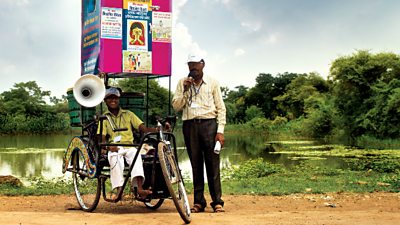
Long reads
Read our comprehensive research reports of the evidence behind our work. All of our publications are freely available to download. -
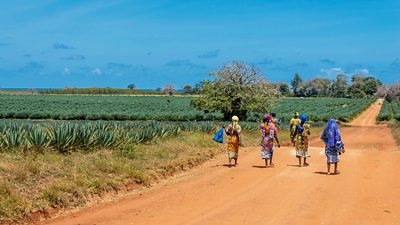
Short reads
At a glance, explore key findings and evidence behind our work. All of our publications are freely available to download. -
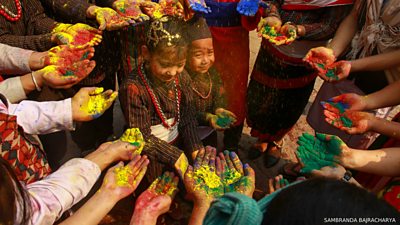
By country
Explore our findings and analysis country by country. All of our publications are freely available to download. -
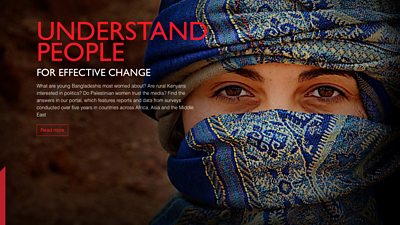 What are young Bangladeshi's most worried about? Are rural Kenyans interested in politics? Do Palestinian women trust the media? Find the answers in our data portal (last updated 2020).
What are young Bangladeshi's most worried about? Are rural Kenyans interested in politics? Do Palestinian women trust the media? Find the answers in our data portal (last updated 2020).
